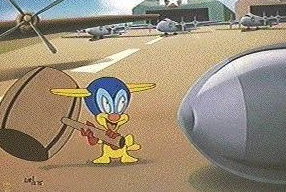Dennis O’Neil and the Gremlins
Here’s a brief excerpt from last week’s column that will help you understand why we’re in the gremlin-blaming game:
If you think I’m recommending the course, you’re right, and so you should know its title. Happy to oblige Dr. Armstrong had reached the section of her presentation that deals with the twentieth century Arthur and spoke of Marian Zimmer Bradley’s Arthurian novels – you might know The Mists of Avalon – and then she began to talk about Mike Barr’s comics.
Notice anything missing there? Yep. After “happy to oblige” there should be the name of the course I’m recommending. And there isn’t. Tsk.
Well, let us make haste to right the wrong. I’m happy to oblige you with the following information: “King Arthur: History and Legend.”
The course is offered by The Teaching Company as part of it’s Great Courses catalogue and a quick Google should give you the particulars.
Now about those gremlins. You’ve probably heard the name and a lot of you have no doubt seen one or both of the Gremlins movies. The first is catchily titled Gremlins and the second, even catchier, Gremlins: The New Batch. The eponymous critters portrayed in the films and nasty and mean and ugly and I guess those words would do to describe chimera that inspired them. I’m not as sure as I’d like to be because gremlin data seems kind of scarce, though the ever-useful Funk and Wagnall’s Dictionary of Folklore, Mythology, and Legend gives them a goodly amount of space and tells us that “there is little agreement as to their description.”
It seems that they first appeared during the first world war and had a special affinity for bollixing aircraft. Something isn’t working and there is no earthly reason why? Only one possible answer: gremlins.
This clandestine sabotage persisted on through the second world war and I guess to the present. Now, I’m not a big believer in spookies of any sort, but if gremlins do exist they explain an awful lot about my life. Technology is not my friend. Cars, televisions, video players, global positioning trackers, and especially computers and their spawn…they’ve all had their innings making my existence a frustration. Often.
My deeply skeptical DNA sharer would say “coincidence” and I would riposte “this frigging much coincidence?” DNA sharer is pretty smart, but about this, he’s wrong. No. Unacceptable. It is saner, more logical and reasonable, to posit a malevolent intelligence, omnipresent, sly. resourceful, with infinite access to machinery and gadgets of all sorts. And he, or she, it or they, hate me. Don’t ask why. I have no idea what my offense might have been. Or when I committed it.
Maybe I’m being mistaken for some other Dennis O’Neil.
But that missing reference to the Dorsey Armstrong course? It’s in my draft and it isn’t in the printed column, so kindly draw your own conclusions. Gremlins. Has to be.
I wonder what this column fidelyobscrave trom ostitrove




























